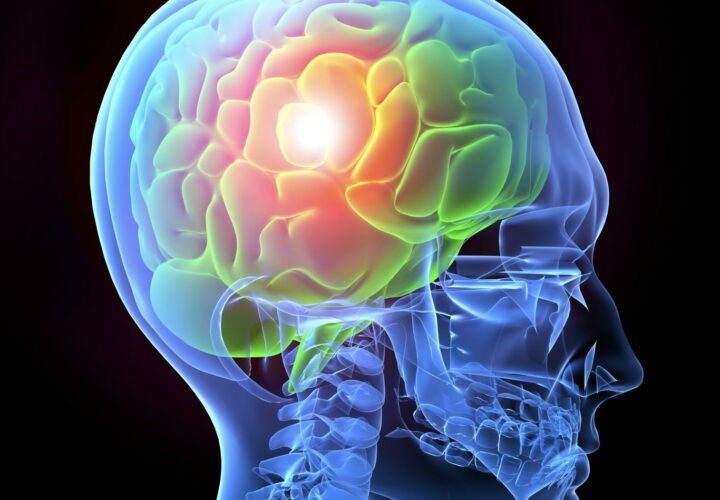Inflammation is a major suspect in the search for a cure for Alzheimer’s disease. Often patients only see symptoms of the disease when they reach the Alzheimer’s brain inflammation stage. But it’s been proven it’s not as simple as taking an anti-inflammatory drug. Being Patient asked Donna Wilcock, a researcher at the University of Kentucky, how inflammation and the vascular system could be the key to unlocking the mystery of Alzheimer’s disease.
- Alzheimer’s cure is not as simple as taking an anti-inflammatory drug
- Researchers are looking at how blood vessel changes affect Alzheimer’s disease
- Homocysteine levels could be potential risk factor for Alzheimer’s
Watch Full Video Here:
Being Patient: A lot of researchers are looking toward inflammation to see whether it will unlock the key to solving what causes dementia. What role does inflammation play and why is it such an important piece to research?
Donna Wilcock: When we talk about the brain and inflammation, what we’re talking about is there’s specialized immune cells that live in the brain and they’re there to make sure that nothing bad happens. When they detect foreign material, and some of the changes we see in Alzheimer’s disease are recognized as being foreign by these cells, they produce chemicals, what we call cytokines, chemokines. These chemicals’ signal can cause damage. They can also be very good and they can help to get rid of those bad things that are happening in the brain like plaques and tangles. We know that if you drive these cells in a certain way they’ll actually remove the plaque, which is a good thing. You don’t want that to happen and also have them releasing chemicals that are going to injure the nerve cells.
Being Patient: Why not take an anti-inflammatory? Would it work to stop the bad things from happening inside the brain?
Donna Wilcock: I think if you go back 15 years, there were a lot of population studies that saw a link between patients who used nonsteroidal anti-inflammatory drugs like your ibuprofen or your paracetamol, that were using these daily potentially for their arthritis or other conditions. There was a link between those patients potentially being protected from developing dementia later in life. There was a lot of excitement about this because we did know that there was an inflammatory process in the brain.
There was a clinical trial done, and that clinical trial had to be stopped. There was really no efficacy and in some patients actually, it seemed to make them worse. Now what the field is trying to do it to actually try and instead of blocking inflammation, it’s trying to find a way to modulate and tune the inflammation so that we can have the good without the bad.
Being Patient: A lot of your research is focusing on both the inflammatory component as well as how the vascular system relates to the whole brain and system. Tell us a little bit about what piece of the puzzle you’re looking to solve.
Donna Wilcock: The issue has really become that we need to focus on the patient. A lot of our sporadic Alzheimer’s disease patients, meaning people who are over 65 who are being diagnosed with Alzheimer’s, are going to have some changes to their blood vessels too. That [change] can independently change the way the brain functions.
We want to know how those blood vessel changes affect the Alzheimer’s disease itself. The plaques and the tangles of Alzheimer’s disease, but also how it affects memory performance. It may not be sufficient in a large number of patients to simply attack the plaques and the tangles. You may have to also address other things that are affecting the way the brain functions, and we think the blood vessels are one of those things.
Being Patient: There’s been a lot of talk around food, for example everyone should eat their blueberries, anything with dark purple pigmentation. The reason for that is, I think research has proven it’s linked to pigmentation called anthocyanin and that is supposedly a very good way to improve blood vessel health. As a scientific researcher, do you believe there is truth around the role that food plays in terms of brain health?
Donna Wilcock: Yes, absolutely there is. There’s more and more studies coming out now that are controlled large-scale studies looking at diet. Mediterranean diet for example, has been getting a lot of press. We actually think as a field now that a lot of that relates to not necessarily the Alzheimer’s changes, but the vessel changes. Now the brain can cope with the Alzheimer’s changes for a longer period of time before that person becomes demented.
Being Patient: And what about vitamin levels?
Donna Wilcock: Yes. One of the things we’ve been studying is something called hyperhomocysteinemia, elevated levels of the amino acid homocysteine in the blood. As many as 40 percent of people over the age of 80 potentially have high levels of homocysteine. It’s not really been systematically studied on a population level but in certain studies that’s the number that’s been seen. The major cause of that is to have deficiency in B vitamins – B12, B6, folic acid. All of those are needed to regulate the levels of homocysteine. If you eliminate those B vitamins in your diet, some people also have a genetic mutation that causes them to get increased homocysteine, that’s rarer than the dietary B vitamin deficiency. We’ve seen that when we induce this in our mice, we see big changes in the blood vessels in the brain and we see memory loss. We’re considering homocysteine as being one of these other modifiable risk factors and modifiable by increasing your B vitamin intake.



Thank you….sounds like we might be getting somewhere in the war against Alzheimer’s!
Well, I hope the war against Alzheimer’s will be won soon. I am 68 and have MCI. My Aunt, her daughter, my Mom, my sister (who was 12 years older than me, all had Dementia. My sister also had Parkinson’s.I believe the combination of the two diseases is known as Lewy Body Disease. I eat healthily, however, as my memory began to deteriorate, I lost about 30lbs, which was good. I have been on Aricept for several years in the hope that it might have. Stopped the disease in it’s tracks. Well, it didn’t. So now what am I to do? Should I try the Ketogenic Diet or not? I guess it can’t hurt if I adopt “everything in moderation.”
I think the ketogenic diet is rather extreme and have not seen evidence that it reduces risk for Alzheimer’s (but someone correct me if I’m wrong). Instead I would follow something like the Mediterranean diet or the MIND diet (they’re both very similar). But basically, avoid sugar, a lot of things made with flour, red meat, saturated fat… Eat lots of fruits (especially berries), even more vegetables, and plenty of olive oil…
Thank you Eric. I already follow The Mind diet.